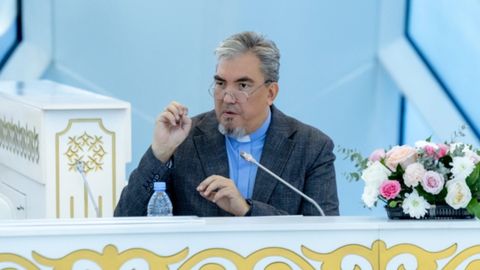EDB, Kcell sign $100mn loan to boost Kazakhstan’s digital infrastructure
23:00 / 03.03.2026
Kyrgyzstan signals action over EAEU export restrictions
21:20 / 03.03.2026
Technical flight lands in Tashkent after UAE airspace closures strand Uzbek citizens
20:31 / 03.03.2026
Uzbekistan, UNICEF strengthen women’s economic empowerment and child protection
20:00 / 03.03.2026
Afghanistan reports engaging Pakistani aircraft over Kabul
19:21 / 03.03.2026
CBU experts forecast 7.6% inflation and 13.7% wage growth
18:09 / 03.03.2026
Uzbekistan may require declaring purpose for card-to-card transfers
16:53 / 03.03.2026
Uzbekistan allows automatic preparation of customs declarations through app
15:47 / 03.03.2026
Recommendations
Menu
Good news:
Tags
Grow your business with us
Advertise on Daryo.uzIndividual approach and exclusive materials
Ad-free site readingSubscribe
25 000 sum per month






Comments
To leave a comment, first